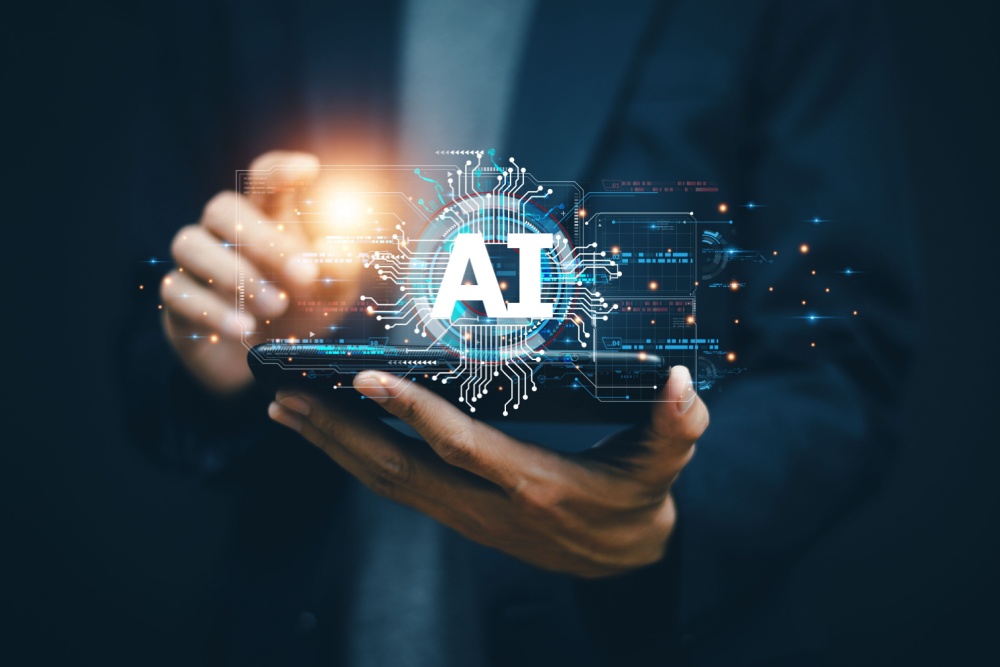Many consumers associate artificial intelligence (AI) with tools like ChatGPT. While ChatGPT and similar generative engines are examples of AI at work, there is much more to AI adoption than just these applications.
Currently, people have yet to determine precisely how AI will affect our lives and careers in the near future, let alone over the next decade. Even OpenAI, the creator of ChatGPT, has stated publicly that it is proceeding cautiously with its technology. Last year, some of the greatest luminaries in the technology industry signed a petition expressing concern over AI, asking developers to pause big AI experiments.
The petition highlighted the profound risks AI systems with human-competitive intelligence could pose to society and humanity, stressing that advanced AI could represent a significant change in the history of life on Earth. Despite these concerns, the development and deployment of powerful digital minds continue at a rapid pace.
So, if AI is not going to end humanity, will it take accounting jobs in the short term? Probably not. However, accountants need to understand what AI is and how they can leverage it in their work.
What is Artificial Intelligence?
AI is a machine’s ability to perform cognitive functions we usually associate with human minds, as defined by McKinsey and Company. AI encompasses several components:
- Machine Learning: A subfield of AI that uses data to detect patterns and make predictions. Examples include Netflix suggestions and predictive texts.
- Natural Language Processing (NLP): This technology allows devices and applications to understand and respond to human language, whether spoken or typed. Siri and Alexa are examples of NLP at work.
- Large Language Models (LLMs): These advanced AI systems can process large amounts of data almost instantly, providing context-rich responses. ChatGPT uses LLMs to generate detailed and coherent text.
AI Adoption Remains Unpredictable
AI components have been integrated into various aspects of daily life for years, from text-to-speech software to digital assistants like Siri and Alexa. However, recent advancements in generative tools have brought AI closer to mimicking human thought processes.
Despite the hype around AI, its future remains uncertain. Predictions about AI’s impact are speculative at best. For example, the ambitious predictions about autonomous vehicles dominating highways by 2020 have yet to materialize. Similarly, AI’s full potential and implications in accounting are still unfolding.
Accountants and AI Adoption
There is a significant knowledge gap about AI among accountants. A recent survey found that nearly 70% of accountants consider themselves only slightly knowledgeable or not knowledgeable at all about AI. Only 11% of respondents actively use AI, while 35% have no plans to adopt it. Despite this, there is some optimism about AI’s potential in the profession. Many accountants believe that firms not using AI may lose value and competitive advantage.
The fear that AI will replace accountants is not unfounded, as some companies are already using AI to replace workers. However, accountants should be fine with their jobs being replaced by AI in the immediate future. AI can still produce incorrect information, and accounting is a profession that requires accuracy and human judgment.
What Accountants Can Do with Artificial Intelligence
AI can be a valuable tool for accountants, enabling them to work more efficiently. AI can assist with routine tasks such as writing proposal letters, marketing emails, and client communications. It can also help with more complex tasks, like generating tax planning ideas based on specific client scenarios.
To leverage AI effectively, accountants should experiment with AI tools, asking questions related to accounting and evaluating the results. This can provide a jumping-off point for developing new client services and advisory offerings, helping firms move faster and innovate more effectively.
How to Get to Know AI
The best way to become familiar with AI tools is to use them. Experiment with different AI applications to see how they can assist with accounting tasks. For example, have an AI tool generate an introductory email to a client or answer questions about tax policy. This hands-on approach will help accountants understand AI’s capabilities and limitations, enabling them to effectively integrate AI into their workflow.
Embracing AI in Accounting
Accountants need not fear AI. With the right introduction and practical applications, AI can enhance their work rather than replace them. Educating employees about AI and designing a team or individual to manage AI adoption can help firms leverage this technology. AI is here to stay, and firms that embrace it will be better positioned to lead in the profession.
Frequently Asked Questions
1. Will AI replace accountants?
AI is not likely to replace accountants in the near future. While AI can automate certain tasks, it cannot replace the human judgment, client service, and complex decision-making that accountants provide.
2. How can AI benefit accounting firms?
AI can streamline routine tasks, enhance data analysis, improve efficiency, and free up accountants to focus on more strategic and advisory roles. It offers new ways to interact with data and develop client services.
3. How should accountants start using AI?
Accountants should experiment with AI tools, starting with tasks like generating client communications and answering accounting-related questions. Understanding AI’s capabilities and integrating it into the workflow can help firms effectively leverage its benefits.




